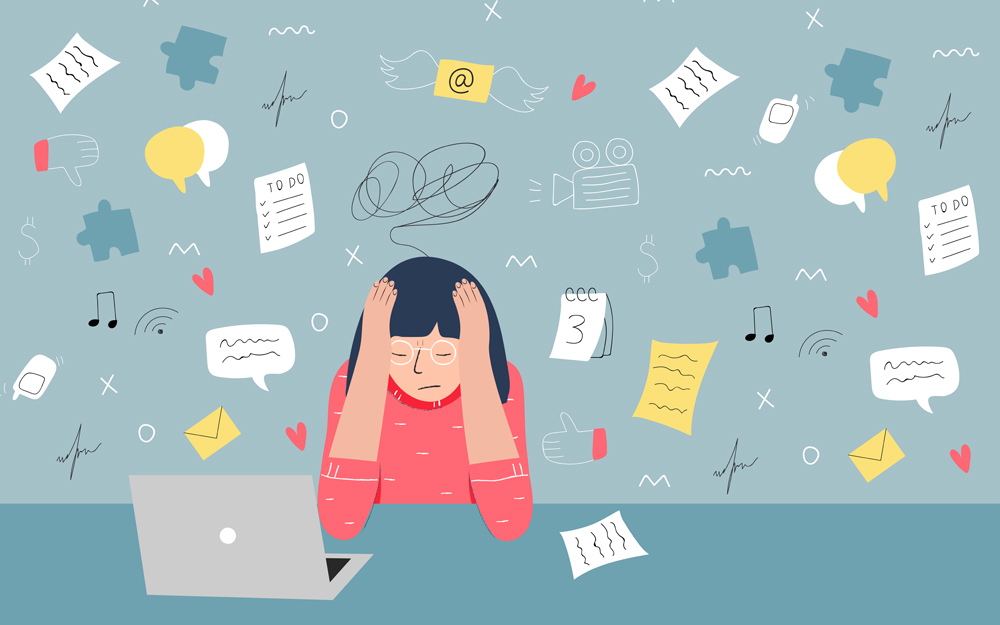2nd November marks national stress awareness day. It was set up by the International Stress Management Association, with the mission of raising awareness of the effects of psychological distress in the workplace and strategies to address it.
Stress is defined by the World Health Organisation as “any type of change that causes physical, emotional or psychological strain”. It can manifest in many ways, physically it may include an increased heart rate, difficulty in breathing, disturbance in sleep or a change in eating. Mentally, it may include fear, worry, inability to relax, and difficulty concentrating.
Workplace stress is becoming increasingly common with 822,000 workers suffering from work-related stress.
Stress isn’t always bad and, in moderation, can help people stay focused, energised, and motivated. However, stress becomes an issue when workers feel that they are unable to cope, and it starts taking a toll on both your body and mind.
How to Beat Workplace Stress
1. Spot the signs of workplace stress
If you notice that you are becoming increasingly stressed at work, learn to recognise the physical and psychological effects, and do something about it before you become extremely ill! Once you have established the source of stress speak to your manager, HR or anyone you feel comfortable with - employers have a duty to ensure the health, safety and welfare of their employees!
2. Speak to a colleague about it
Speaking to colleagues about how you’re feeling can be great and help to soften the negative effects of work-related stress. It also gives you someone to turn to who can understand how you feel. If you don’t feel that you have anyone to turn to at work it’s never too late to build friendships at work, ask a colleague to go for coffee or out for lunch and you might find that you grow to feel more comfortable around that person and can open up to them!
3. Speak to friends/family about it
If you don’t feel comfortable talking to colleagues about this, speak to family members and friends – it is likely someone you know will have experienced workplace stress before and may be able to offer some advice that helped them. Having a strong social network can help you get through tough times.
4. Ensure you’re looking after your physical health
Stress can manifest physically in a lot of cases, often you want to eat more sugary foods, sit and watch TV – anything that feels comforting. Whilst this is great to do on occasion, ensuring you are on top of your physical health can help your mental health and manage your stress better. Try to exercise regularly – this doesn’t have to be vigorous, it can be something more gentle, such as walking or yoga. Eating a healthy diet also helps - cut out the sugar and caffeine as much as possible and try to eat foods higher in Omega-3 to give you a mood boost. Ensuring you are getting enough sleep will also contribute to you managing stress better!
5. Mobile Apps to help manage stress
There are lots of mobile apps available to help you combat workplace stress:
- Headspace- a study found that 30 days of using Headspace lowered stress by 32%
- Calm – an app with a variety of videos, such as guided stretching and meditation and sleep stories
- Stoic - a mental health training app that helps you learn to cope with stress and daily obstacles

If you need to speak to someone urgently, reach out to any of these services:



